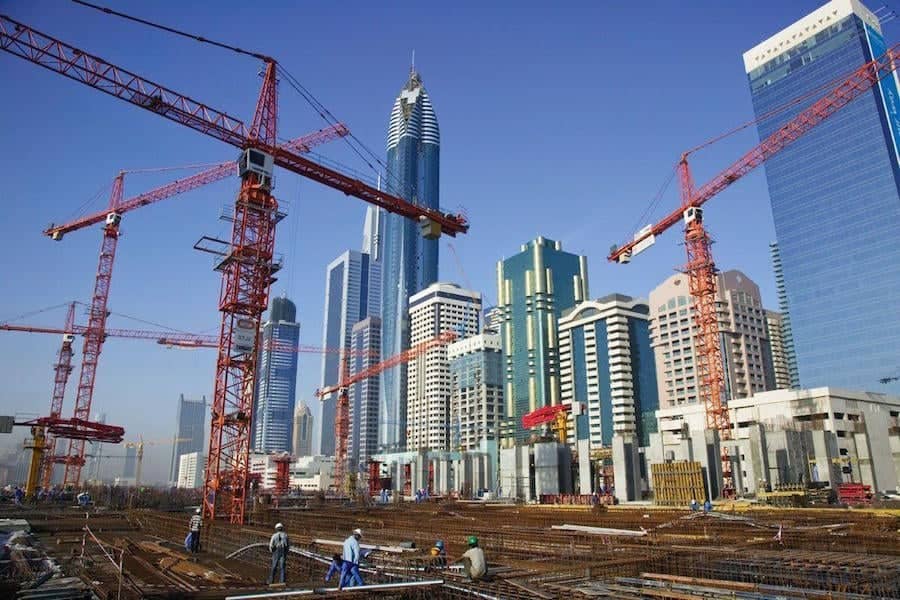Before signing an off-plan unit sale and purchase agreement, it is highly recommended that you conduct thorough due diligence. This will ensure that you make an informed decision and avoid any potential risks. To begin with, buyers should visit the Dubai Land Department (DLD) and the Real Estate Regulatory Agency (Rera). Alternatively, you can also visit the DLD’s website to gather the necessary information about the off-plan unit.
Here are some key details that you should look into:
- Verify if the real estate project, where the unit is located, is registered with Rera. This will provide you with the assurance that the project is legitimate and compliant with regulations.
- Check if there is an escrow account established for the project. Obtaining the escrow account details will give you peace of mind, as it ensures that your funds will be protected throughout the development process.
- Determine the percentage of completion of the project and the expected date of completion. This information will help you assess the progress of the development and plan your investment accordingly.
- Confirm if the developer is registered with Rera. Additionally, find out if the developer owns the development land or if there exists a development agreement between the owner and the developer. This will help you understand the credibility and reliability of the developer.
If the developer has the required permits and approvals from DLD and Rera to sell units off-plan in the relevant project, you can be confident that you are investing in a legitimate project.
To ensure that the off-plan unit is reliable, it is important to gather satisfactory details about it.
Regarding your rights as an investor, specifically in terms of the timely handover of the off-plan unit, you can refer to Law No (8) of 2007 Concerning Escrow Accounts for Real Estate Property Development in the Emirate of Dubai. This law mandates developers to open and maintain an escrow account for each real estate project they plan to develop. This requirement is outlined in Articles (6) and (9) of the Escrow Accounts Law, which state the following:
– Article (6): Developers must open an escrow account for each real estate project they intend to develop.
– Article (9): Developers are obligated to maintain the escrow account throughout the development process.
By adhering to these provisions, the Escrow Accounts Law ensures transparency and accountability in the real estate industry.
“A developer who wishes to sell units off-plan must submit to the DLD a request to open an Escrow Account…”
“1. An Escrow Account shall be opened in the name of each property project and shall be exclusively dedicated for the purpose of implementing that project. No attachment may be imposed on the amounts deposited in this account in favour of the creditors of the developer.
- In the event of multiple projects implemented by the developer, each project must have a separate Escrow Account.”
Furthermore, according to the provisions of the Escrow Accounts Law, all payments made by investors or buyers must be deposited into a designated escrow account specifically created for the real estate project. This requirement is outlined in Article (7) of the Escrow Accounts Law, which states the following:
“An Escrow Account shall be opened pursuant to a written agreement between the developer and the Escrow Agent whereby the payments made by off-plan units purchasers, or by the financers of the project, shall be deposited in a special account with the Escrow Agent in the name of the Real Property Development project.”
The records of the escrow account must be accessible to depositors, including buyers and investors, or their representatives. This requirement is outlined in Article 12 of the Escrow Accounts Law, which states the following:
“Depositors, or their representatives, may have access to their accounting records and request copies of these records. Representatives of official authorities may also have access to, and obtain copies of, these records.”
Finally, in the unfortunate event that a project is not completed, the provisions of the Escrow Accounts Law dictate that the concerned escrow agent must, in consultation with the DLD, take all necessary measures to safeguard the rights of the depositors. This includes ensuring the completion of the project and refunding the payments made by the depositors. This requirement is outlined in Article (15) of the Escrow Accounts Law, which states the following:
“In case of any emergency resulting in the non-completion of a property project, the Escrow Agent of that project must, upon consultation with the DLD, take the necessary measures to preserve the rights of depositors by ensuring the completion of the project and refund the payments made by the depositors.”
In light of the above, please be aware that your investments in a legitimate off-plan unit in Dubai will be safeguarded by the escrow agent if the developer is unable to deliver the unit to you on schedule. Should such a situation arise, you can seek further guidance from the DLD.
It is crucial to consider the terms outlined in the relevant ‘sale purchase agreement’ for the off-plan unit, as they hold significant importance.
Therefore, before proceeding with the agreement, it would be wise for you to thoroughly understand the provisions regarding project completion, extensions of time, and other related matters. Additionally, it is advisable to consult with a legal practitioner in Dubai who can offer you the necessary advice and assistance on this matter.
Also Read: Do tenants in Dubai have to pay service charges and RERA registration fees?
